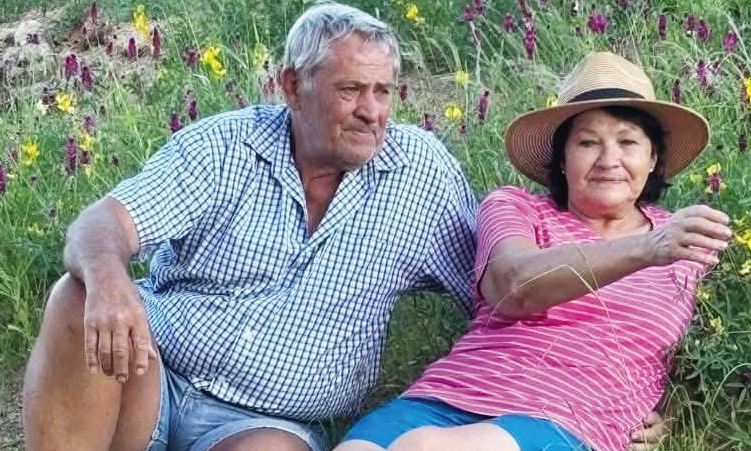THE Omaheke Regional Council has decided to install water and electricity meters for all consumers, including Government institutions, businesses and farms, in a bid to improve its revenue collection system.
Council says monthly pro rata contributions will be determined and collected from consumers without meters. The Chief Executive Officer of the Omaheke Regional Council, Pedereus Tjihoreko, warned that defaulters would find their services disconnected and legal action would be taken against them.”The Regional Council is currently in debt for utility services.It owes NamWater N$1 million and NamPower N$2 million…the Council does not have funds to pay for these services due to non-payment by consumers,” lamented Tjihoreko.The Council was heavily criticised in the wake of the Otjinene water crisis, when its lack of a proper billing system became public knowledge.Residents at some centres, such as Aminuis and Corridor 13, are said to have received water and electricity free of charge since Independence.The Regional Council Act of 1992 requires Regional Councils to buy bulk water and electricity from NamWater and NamPower, and to distribute them.But Omaheke’s failure to pay its debt has left settlements in the Aminuis and Talismanus districts with only 25 per cent of normal water supplies.At Epukiro Post 3, supplies have been halved.Otjinene is still obtaining normal supplies, but only under a temporary arrangement.Last week the Regional Governor, Laura McLeod, and Tjihoreko held meetings in all settlements to mobilise residents’ sentiment behind paying the services rendered to them.The CEO said: “The problems at Otjinene have prompted the Regional Council to consult communities in all settlements to ensure that supply of services such as water and electricity are not reduced or cut in future”.Tjihoreko is optimistic that “the unfavourable” situation in which most settlements in the region find themselves will soon be turned around once the Regional Council’s newly unveiled development initiative, dubbed the Change Project, gets into full swing.The Change Project aims to extend public utilities to all settlements in the region, bankrolled by improved revenue collection.Poorer communities such as the San-speaking people who are unable to pay for services “will be assisted through income-generating projects”.Meanwhile, arrangements need to be made for Epukiro Post 3 where residents are apparently reluctant to pay for water because it contains lime, which they believe makes it unfit for human consumption.Epukiro residents are buying their drinking water from other communities.The Chief Executive Officer of the Omaheke Regional Council, Pedereus Tjihoreko, warned that defaulters would find their services disconnected and legal action would be taken against them. “The Regional Council is currently in debt for utility services. It owes NamWater N$1 million and NamPower N$2 million…the Council does not have funds to pay for these services due to non-payment by consumers,” lamented Tjihoreko. The Council was heavily criticised in the wake of the Otjinene water crisis, when its lack of a proper billing system became public knowledge. Residents at some centres, such as Aminuis and Corridor 13, are said to have received water and electricity free of charge since Independence. The Regional Council Act of 1992 requires Regional Councils to buy bulk water and electricity from NamWater and NamPower, and to distribute them. But Omaheke’s failure to pay its debt has left settlements in the Aminuis and Talismanus districts with only 25 per cent of normal water supplies. At Epukiro Post 3, supplies have been halved. Otjinene is still obtaining normal supplies, but only under a temporary arrangement. Last week the Regional Governor, Laura McLeod, and Tjihoreko held meetings in all settlements to mobilise residents’ sentiment behind paying the services rendered to them. The CEO said: “The problems at Otjinene have prompted the Regional Council to consult communities in all settlements to ensure that supply of services such as water and electricity are not reduced or cut in future”. Tjihoreko is optimistic that “the unfavourable” situation in which most settlements in the region find themselves will soon be turned around once the Regional Council’s newly unveiled development initiative, dubbed the Change Project, gets into full swing. The Change Project aims to extend public utilities to all settlements in the region, bankrolled by improved revenue collection. Poorer communities such as the San-speaking people who are unable to pay for services “will be assisted through income-generating projects”. Meanwhile, arrangements need to be made for Epukiro Post 3 where residents are apparently reluctant to pay for water because it contains lime, which they believe makes it unfit for human consumption. Epukiro residents are buying their drinking water from other communities.
Stay informed with The Namibian – your source for credible journalism. Get in-depth reporting and opinions for
only N$85 a month. Invest in journalism, invest in democracy –
Subscribe Now!










